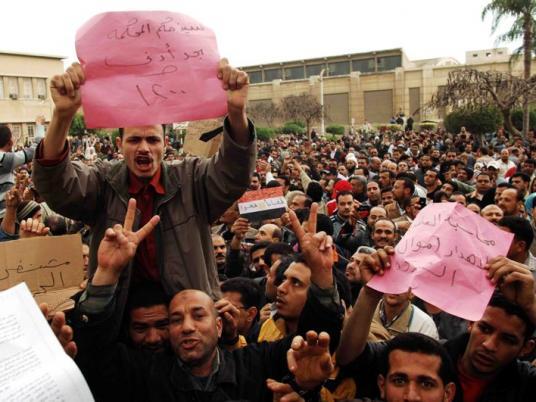CAIRO: Recent news that the Middle East peace conference is to be postponed to January is to ensure that the conference is more successful than the Camp David II meeting in 2000, an expert said.
“If the postponement is true, then that means more time is needed for preparation and efforts to create a document that will guarantee the minimum terms of negotiations, Emad Gad from Al Ahram Center for Political and Strategic Studies told Daily News Egypt, “Rice is willing to postpone the conference until an agreement is reached.
“The Camp David conference in 2000 failed because there wasn’t enough preparation, he added.
The US-sponsored peace conference has been postponed until January, a US State Department official told the Universal Press Agency Sunday on condition of anonymity.
Originally scheduled for the fall, negotiations seem to have hit a snag over differing Palestinian and Israeli intentions for the specificity of the document to be released at the conference.
The reason given is that the Palestinians want the conference document to be specific about the terms of final status talks, or core issues.
“The Arabs want a document of principals which will lead to a Palestinian state with East Jerusalem as its capital, and with a fair solution for the refugees, Gad said, “and even Abu Mazen (Palestinian President Mahmoud Abbas) isn’t too concerned with the land specifically annexed in 1967. He is willing to be compensated for it in other parts of the land.
Therefore, “the conference is a beginning from which a solid and clear basis for negotiation could be launched, he added.
Israel, on the other hand, wants the document to be more ambiguous. However, recent reports in the Israeli press have indicated that Israel is willing to discuss the three core issues, the right of return, the status of Jerusalem and the borders of a Palestinian state.
Israeli embassy spokesperson Shani Cooper-Zubida told Daily News Egypt that Israel’s reticence in addressing the core issues in detail was due to reluctance to raise unnecessary expectations.
“We are not dealing with what is the Israeli position in each and every one of the core issues because we don’t want to raise expectations that could lead to frustration and violence. The idea is to reach an understanding, to find a common ground and denominator on the open issues and to do it in a closed room with the Palestinians, she said. “Israel is ready for compromise in a way that will enable us to realize the goal of two states while protecting our national and security interests. We hope to discover the same willingness on the Palestinian side, she added.
“In all out efforts Israel is guided by the goal of two states, two homelands for two peoples, Israel and Palestine, Cooper-Zubida said.
